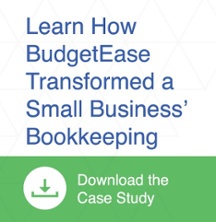 You never want to learn that a trusted employee has been stealing from your company. Unfortunately, when it comes to small business bookkeeping employee fraud is common due to a lack of internal controls. Fraud is a concern for all of us.
You never want to learn that a trusted employee has been stealing from your company. Unfortunately, when it comes to small business bookkeeping employee fraud is common due to a lack of internal controls. Fraud is a concern for all of us.
Most fraudsters are 1st time offenders and have never been charged with a crime.
The most common types of fraud are billing fraud, check tampering, payroll, and expense reimbursement fraud. Some employees commit billing fraud through paying bills to false vendors or using petty cash to pay for personal expenses.
Check tampering can easily happen when an employee writes a check and forges the endorsement of the business. Employees handling payroll, can simply manipulate the amount he or she is paid or recreate the likeliness of a check. Finally, expense reimbursement fraud occurs when employees submit reimbursements for expenses that never occurred, items that do not need to be reimbursed, or duplicating past reimbursement expenses.
The longer the perpetrator works in an organization the bigger the fraud and you can expect to recover only half of your loss. The best way to prevent fraud is to incorporate strong internal controls:
- Separation of duties: Having one employee responsible for writing checks, while having another employee (or yourself) sign off on them. This type of control can prevent payroll fraud.
- Performing an Audit: Having an outside source to come in and look at your financial records at least once a year. (QuickBooks also has an “Audits Trail” report, which you can run monthly)
- Review Bank Reconciliations and Bank Statement: Review your bank reconciliation and Statement monthly. Quickly look over all the transactions for the month to make sure there are no surprises.
- Review Journal Entries: Review your journal entries monthly. These include accrued expenses, payroll expenses, depreciation, etc. Keep an eye out for unusual entries.
- Keep track of QuickBooks: When your are setting up QuickBooks create internal controls such as passwords and closing dates to make sure certain employees in your company cannot make changes to previous periods.
- Encourage longer vacations. It is hard to cover up a fraud when the employee is gone for two weeks.
Small businesses without strong internal controls can easily be taken advantage of by their "trusted" employees. On average, 30% of small businesses affected by fraud lose $140,000-$190,000! But fraud is easily avoidable by using just some of the methods listed above. Many small businesses enlist an outsourced bookkeeper that can help them keep track of these records including bank statements and reviewing journal entries.
- Jim Gruber
Sources:
http://www.acfe.com/article.aspx?id=4294976289
http://kerrbookkeeping.blogspot.com/2012/08/how-to-prevent-fraud-adn-theft.html




